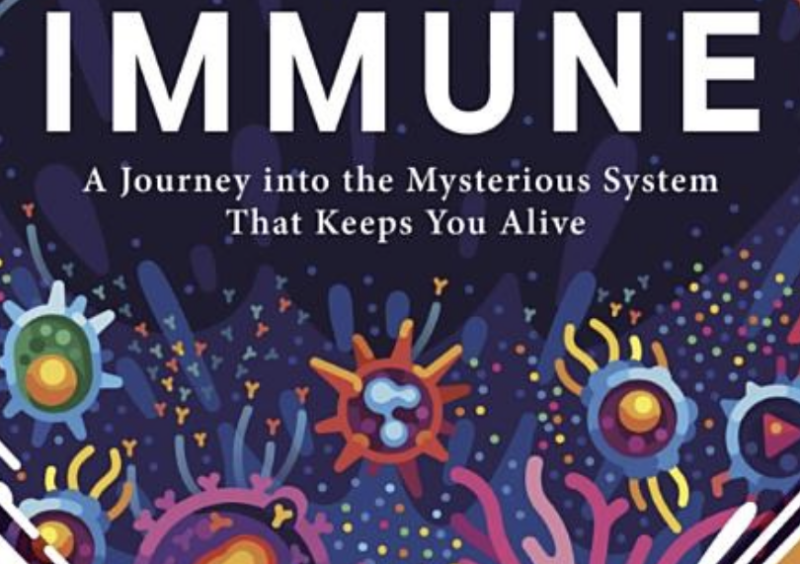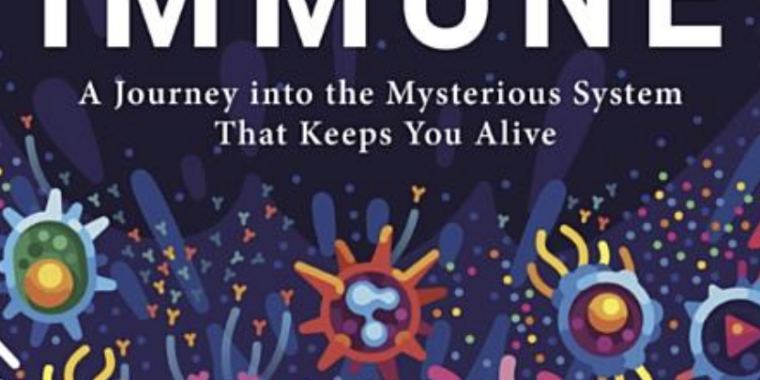
If ever there was a moment to brush up on your knowledge of the immune system, this is that moment. (OK, March-April 2020 may have been preferable, but you can still catch up.) And Immune: A Journey into the Mysterious System That Keeps You Alive is the perfect vehicle to help you do that. This book is phenomenal. It is engaging, it is informative, it is extremely clear and well-organized, it is helpful and illuminating and relevant and eye-opening and incredibly timely. And it is beautiful. Go get it and read it.
With enthusiasm
Philipp Dettmer is not an immunologist. He is a self-described “immune system enthusiast.” But his is no dilettantish, idle intellectual curiosity. He comes by his enthusiasm honestly, as he has had more intimate run-ins with his own immune system than anyone would like. As an adult, he developed a food allergy that sent him to the hospital with shock, and he had to undergo chemotherapy when he got cancer at age 32.
What Dettmer is, though, is an information designer. He founded Kurzgesagt-In a Nutshell, one of the largest science channels on YouTube, which exists to explain complex ideas in an accessible, holistic manner. But the immune system is incredibly, ridiculously, notoriously complex. So much so that even Dettmer, who has dedicated his career to making obtuse scientific information accessible, decided that the best way to introduce immunity was in book form rather than through his online videos. And an introduction is all the book is, as he tells you repeatedly; it’s just a cursory overview of the whole intensely complicated affair. Immune is littered with disclaimers like this one:
Regulatory T cells are one of the parts of the immune system where things become very blurry. In this book we are trying to be clear and to paint the picture of a structured and orderly system. Unfortunately there are areas where this is harder to do than in others and Regulatory T cells is one of them. So we will not dive into any more detail here because there is a lot of complexity buried here and a lot that is not completely understood yet.
With Immune, Dettmer wants readers to appreciate the immune system as much as he does. But he wants to do so without oversimplifying our bodies or getting so detailed that readers’ eyes glaze from trying to keep track of all our many, many parts. And he succeeds.
Over-analogized?
One tactic Dettmer relies on heavily is analogies; his go way beyond the martial metaphors that are inevitably and painfully used when describing the immune system. Receptors on cell surfaces are like noses the cell uses to sense its environment; lymph nodes are like speed-dating sites where cells from the innate immune system activate the appropriate cells from the adaptive immune system. The analogies didn’t work for me at first—they didn’t really make the concepts Dettmer is presenting easier for me to understand. But on the book jacket, John Green said he liked it, and he’s a smart guy. So I tried to be more open-minded as I kept reading.
From the point of view of a cell, Dettmer writes, your body is comprised of oceans and mountains and deserts and swamps. I didn’t love that analogy. But then he writes about the immune system in your gut. That system needs to be a little more tolerant than other tissues because all the food you ingest flows through it and all of the commensal microbes live there. It’s “a bit like Switzerland,” Dettmer writes, “sure it is part of Europe, but still does its own thing to a certain degree and is technically independent.” That made the whole body-as-continent thing worthwhile. I was converted.
He goes on to compare our microbiome to a training dataset for the AI that is our immune system. In this comparison, autoimmune diseases and allergies might result in part from the limited microbiomes we have in our modern, relatively sterile environments and fiber deficient diets—much like racist, sexist algorithms result from training on data sets comprising predominantly white faces.
Dettmer likens people who eschew vaccines and prefer to gain immunity through “natural” infections to those going to a self-defense class where the instructors use real guns and swords. Genius. He does periodically remind us not to anthropomorphize cells and pathogens—they are just sacks of proteins with behaviors that rely exclusively on chemistry, not any kind of altruistic or nefarious motives. But then he ignores his own warning and goes back to those analogies.
Although big and heavy, Immune is eminently readable. No chapter is longer than 10 pages, and the tone is chatty, with Dettmer addressing you directly in the second person and using lots of exclamation points. It is peppered with magnificent drawings of immune cells, pathogens, antibody subtypes, and other bits of our inner landscape, all done by Kurzgesagt-In a Nutshell creative director Philip Laibacher. And it has one of the best pieces of advice I have ever gleaned from a book: “One of the worst things you can do late at night is to Google infections by parasitic worms.”
Ars Technica may earn compensation for sales from links on this post through affiliate programs.








